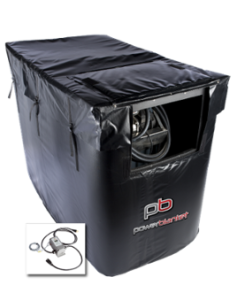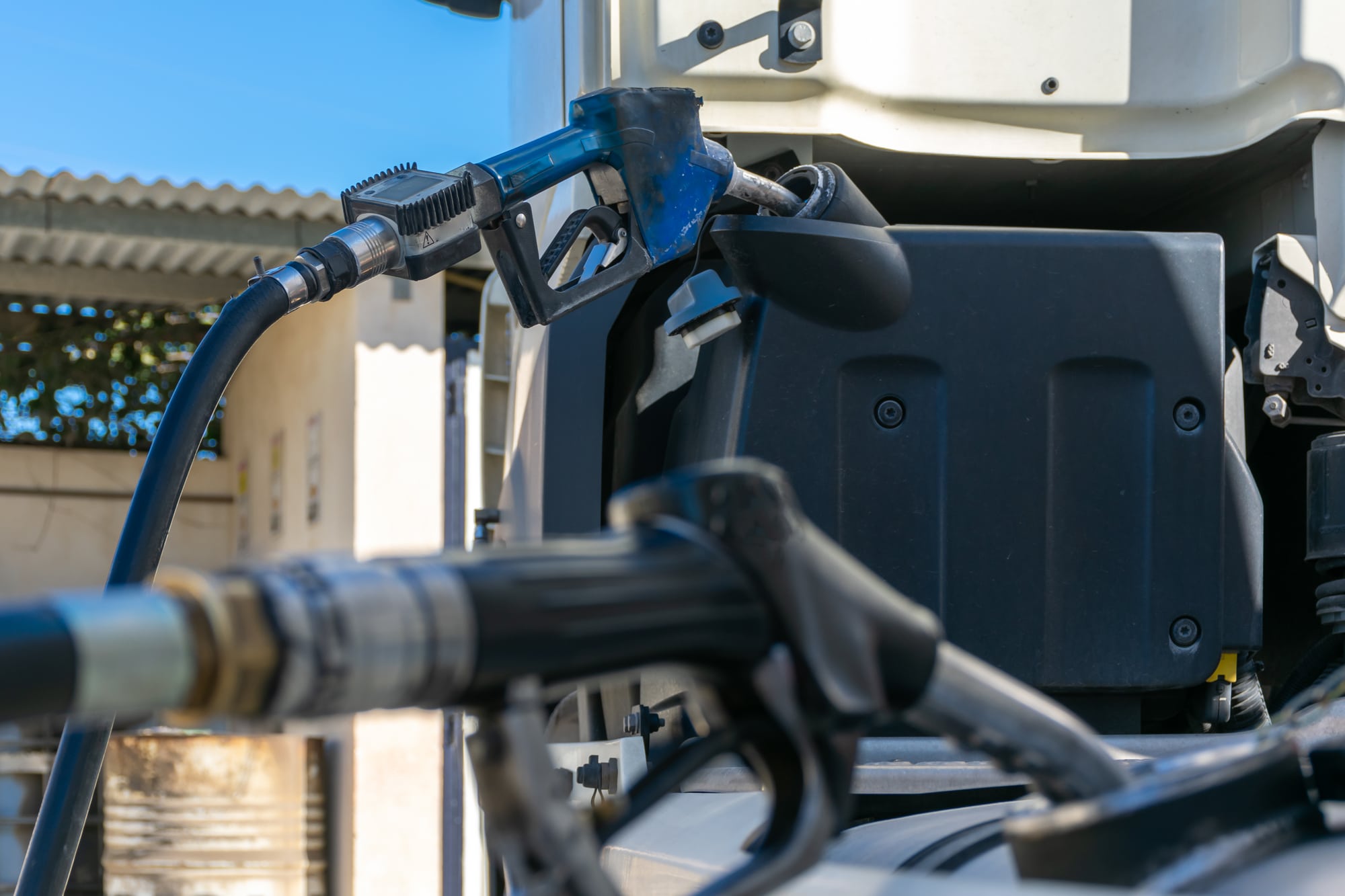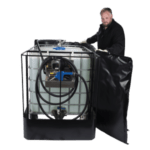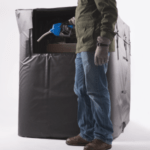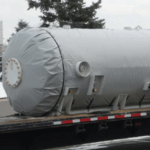Diesel Exhaust Fluid, otherwise known as DEF, is a required component of any diesel-run vehicle. Whether you’re new to working with this fluid, or you simply need a refresher course, we’re here to help. Here are some frequently-asked-questions and quick DEF facts to make your job easier.
What is Diesel Exhaust Fluid and Why Is It Required?
DEF is a fluid that is non-hazardous, non-flammable, and non-toxic. This exhaust fluid is made up of 67.5% deionized water and 32.5% urea. It has one simple (but very important) job to do – reduce the harmful emissions otherwise ejected by diesel-fueled vehicles.
About ten years ago, the EPA (Environmental Protection Agency) made this exhaust fluid mandatory for all diesel vehicles in the United States. It was time for a solution to clean up the air and reduce harmful pollution.
How Does DEF Work In My Diesel-Run Vehicle?
DEF is pumped into the vehicle’s DEF tank. When the engine is running, the exhaust fluid enters the SCR (Selective Catalytic Reduction Systems). The SCR then sprays the DEF directly into the diesel exhaust stream. Once the DEF has made contact with the exhaust, ammonia from the DEF effectively breaks down the harmful emissions of nox (nitrogen oxides) into simple, harmless nitrogen and water.
Does DEF Go Directly Into the Diesel Fuel?
Nope! Never!
The DEF never makes direct contact with the diesel fuel itself – it is only sprayed into the exhaust stream. In fact, if DEF were allowed to enter the diesel fuel tank, it would contaminate the engine fuel. If the engine was then turned on, you would likely do significant damage to your vehicle. In addition to unwanted gummy deposits that would build up over time, the exhaust fluid would corrode metals and damage the fuel system. So basically, don’t mix up your fuel and DEF tank unless you want to deal with a world of headaches.
Powerblanket’s DEF tank heaters provide the ultimate heating solution to effortlessly maintain optimal DEF storage temperatures year-round. Investing in one of our top-quality DEF tank heaters means never having to worry about frozen or degraded DEF supplies again.
What is an SCR?
As mentioned above, SCR is short for Selective Catalytic Reduction systems. This is the emissions control system within the vehicle that allows the DEF to make direct contact with the diesel exhaust. The SCR pushes the liquid DEF through a catalyst into the exhaust stream, which sets off a chemical reaction to convert the nox into nitrogen, water, and small amounts of carbon dioxide. These safe emissions then exit through the vehicle’s tailpipe.
The SCR is responsible for greatly reducing the pollution otherwise emitted from diesel-run vehicles, protecting the environment and enhancing overall air quality.
Can My Vehicle Run Without DEF? 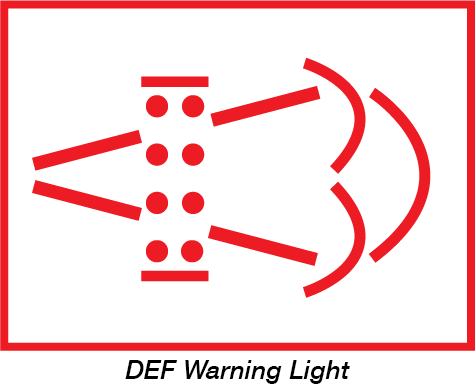
When it comes to protecting the environment, there’s no messing around. You will see a warning light on your dashboard alerting you to the fact that you’re running low on your exhaust fluid. Don’t ignore it.
If your DEF tanks becomes empty, a few things will happen. First, you’re going to lose a lot of engine power. Consider this your warning to get to the nearest fueling station and refill. If you ignore the warning, the vehicle will eventually throw a fit and stop working altogether. That’s right – it will refuse to budge until refilled. If you don’t want to deal with costly time delays for your business due to a vehicle that won’t work, it’s best to take the DEF warning seriously.
Save yourself the trouble of becoming stranded without a refill option nearby. Either have some DEF stored or know exactly how much is in your tank and plan accordingly.
Does DEF Negatively Affect My Fuel Economy?
No, DEF should not reduce your vehicle’s fuel economy. In fact, many who work directly with diesel vehicles have claimed their fuel economy has improved since DEF became required. The engine’s performance is likely to improve as well. And as mentioned, diesel engines that do not have DEF are going to perform sluggishly or stop performing completely.
Where Can I Find DEF?
When it comes to purchasing DEF, you have a couple of options.
- Local Automotive Parts Store: If you need just a few gallons in your vehicle’s DEF tank, you can easily find a small container of it at a local automotive parts store. You can also find it at a larger chain store like Walmart.
- Fueling Stations: If you are out on the road quite a bit, it’s likely you’ll need to fill up at local fueling stations. Many times, you can find DEF offered at diesel gas stations. You may also find them at some regular gas stations as well. The best idea is to have your phone handy and do a little research before your trip, mapping out exactly where you will fill up on DEF along your way.
- DEF Manufacturers: If you manage a large fleet, you may be more interested in storing bulk tanks of DEF instead of constantly filling up at fueling stations. This gives you the ability to organize the DEF tank fill-ups of each vehicle and save on costs as well.
How Can I Store DEF Safely and Correctly?
Here are some quick, easy tips for correctly storing your bulk supply of DEF.
- Store in a cool, well-ventilated area.
- Avoid storing your containers in direct sunlight. The more sunlight, the more the DEF will degrade over time.
- Use bulk containers that are specifically designated for DEF storage only. Choosing to use a container that has previously held another oil or substance is likely to contaminate the DEF, which can greatly damage the SCR system in your vehicle.
- Store the DEF at temperatures between 12° and 65° Fahrenheit. Keeping it from rising above 65 degrees is going to greatly lengthen the shelf life of your DEF from one year to two years or more.
What if My DEF Gets Too Cold or Too Hot?
DEF can freeze when ambient temperatures drop below 12° Fahrenheit. Frozen DEF should not degrade the product and will be reusable when it thaws. However, frozen DEF still presents a problem as it’s unusable throughout the winter, leaving you without your vehicles when you need them.
When it comes to shortening shelf life, hot temperatures are the main culprit. When the DEF is allowed to reach above 86°F for a sustained amount of time, the DEF will become compromised and degrade. When this happens, it will shorten the shelf life by a year or more.
So, what should you do to properly regulate your DEF’s shelf life?
The smart option is to carefully regulate the temperature of your DEF while it is in your bulk storage.
Luckily, there is a low-maintenance, set-it-and-forget-it solution that will ensure your DEF is good for the optimal amount of time – Powerblanket DEF Tank Heaters to the rescue!
During the extreme seasons, ambient temperatures do not cooperate with your storage temperature needs. For this reason, we recommend checking out our DEF tank/tote heater, which is one of our best agriculture heating solutions on the market.
Get a Powerblanket DEF Tank Heater
Get the heating solution that will effectively moderate your DEF’s temperature. At Powerblanket, our DEF tank/tote heaters are the optimal solution to perfect, effortless temperature control. Here’s what you can expect from one of our top-of-the-line DEF heaters:
- Prevents Overheating and Freezing
- Maintains Optimal DEF Temperature
- Provides Even Heat Distribution
- Easy to Install and Maintain
- Safety Certified to UL and CSA Standards
If it’s time to protect and preserve your DEF supply, contact Powerblanket’s temperature control experts today. Reach us at 866.945.4203 or by email at [email protected].
Frequently Asked Questions
Can you run a diesel without DEF?
No, running a diesel vehicle without DEF is not possible as it would violate federal emissions standards, and most diesel engines will not operate without sufficient DEF in the reservoir.
What happens if you run out of DEF fluid?
If you run out of DEF fluid, your diesel engine will lose power and eventually stop working until the DEF tank is refilled.
What does DEF fluid actually do?
DEF fluid breaks down harmful nitrogen oxide emissions from diesel engines into harmless nitrogen and water, promoting cleaner air and more efficient vehicle operations.
Can I put water instead of DEF fluid?
No, you cannot use water instead of DEF fluid, as water lacks the necessary chemical properties to reduce nitrogen oxide emissions and could damage the vehicle's emission system.
The Powerblanket DEF tank heater is the most efficient and effective way to heat and store diesel exhaust fluid.


